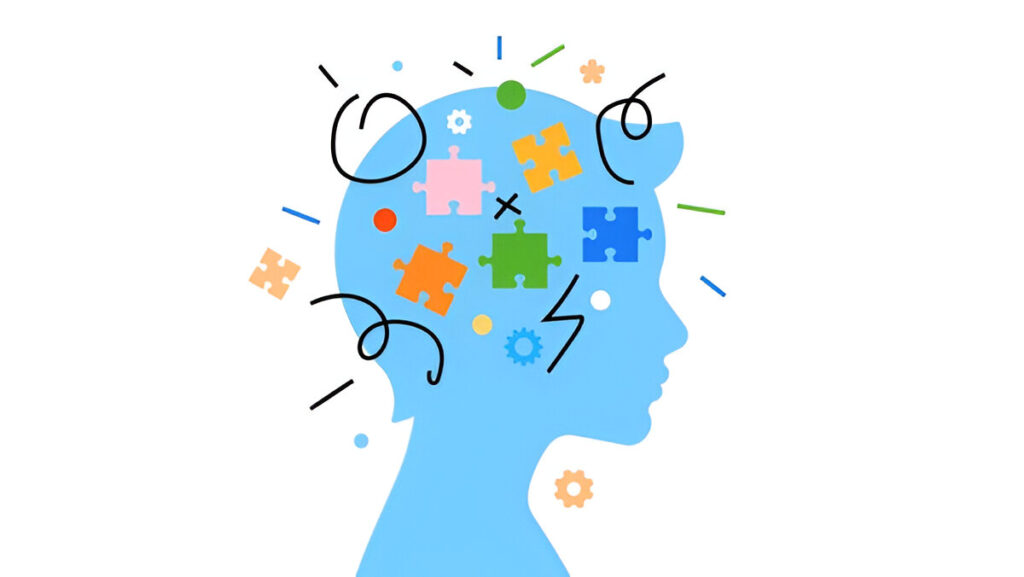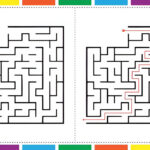I’ve always loved puzzle games. Not because I’m a genius at them (far from it), but because they have a sneaky way of pulling me in for “just one more round.” I used to think they were just fun little challenges — something to do while sipping coffee or avoiding actual work.
But then something strange happened. After weeks of casually playing these games, I realized I was thinking faster, spotting patterns more easily, and solving real-life problems with less effort. That’s when it hit me: these weren’t just games. They were quiet little workouts for my mind.
Today, I’m going to share my favorite puzzle games for brain training — the kind you play for fun but that secretly make you sharper without you even realizing it.
1. Sudoku
Let’s start with the classic. Sudoku is the ultimate test of logic and patience. You’re given a grid, and your job is to fill it with numbers 1 through 9 so that each number appears only once in every row, column, and box.
When I first started playing, I’d get stuck halfway through and feel my brain overheating. But over time, I started spotting patterns faster. I could glance at a puzzle and immediately know which numbers fit where.
The best part? Sudoku teaches you to think several moves ahead — a skill that’s surprisingly handy in real life.
2. 2048
2048 is the definition of “simple but addictive.” You slide numbered tiles around a grid, combining them until you (hopefully) reach 2048. Sounds easy… until you realize how quickly the board fills up.
When I played 2048 during my commute, I thought it was just a way to pass time. But soon, I noticed my planning skills improving. I started thinking about every move in terms of its long-term effect — just like you would in chess, but without the intimidating rules.
Pro tip: Keep your highest number in one corner and work around it. It’s a game-changer.
3. Tetris
Tetris has been around forever, and there’s a reason it’s still so popular. It’s not just about stacking colorful shapes — it’s about thinking fast, adapting to change, and keeping calm under pressure.
The more I played, the more I realized Tetris teaches you how to deal with imperfect situations. You don’t always get the piece you want, so you learn to work with what you have. That mindset is pure gold outside of gaming.
Plus, it’s oddly satisfying when you clear multiple lines in one move.
4. Flow Free
Flow Free looks innocent, but it’s a sneaky little brain workout. You connect matching colored dots on a grid without crossing lines, and the puzzles get more complex as you go.
What surprised me most was how much it improved my spatial awareness. I started recognizing better routes faster, which sounds trivial until you realize it’s the same skill you use when navigating traffic or packing a suitcase.
Also, the “ahhh” feeling you get when the lines perfectly connect? Chef’s kiss.
5. Nonograms (Picross)
Nonograms are picture logic puzzles where you fill in squares to reveal an image based on number clues. Think of it as a mix between Sudoku and pixel art.
When I first tried Nonograms, I was terrible. But as I kept going, I noticed my brain was naturally breaking down big problems into smaller steps — a skill I now use in work projects and even home DIY tasks.
It’s also a surprisingly relaxing game for something that makes you think so much.
6. Monument Valley
This one isn’t just a puzzle — it’s art. Monument Valley plays with perspective and optical illusions, making you twist and turn impossible structures to guide a character to the exit.
The first time I played, I felt like I’d stepped into a living painting. But beyond the visuals, it taught me to challenge my assumptions. Just because something looks impossible at first glance doesn’t mean there isn’t a clever solution waiting to be found.
It’s a beautiful reminder that sometimes, you just need to change your perspective.
7. Baba Is You
Baba Is You is pure creativity in puzzle form. The rules of the game are written as blocks you can move around — literally changing the way the game works. For example, you can change “Baba is You” to “Rock is You” and suddenly you’re playing as a rock.
When I played Baba Is You late at night, I lost track of time. It forces you to think outside every box you’ve ever known. That mental flexibility spills over into how you approach challenges in real life.
It’s not just a game — it’s a masterclass in creative problem-solving.
Comparison Table: Puzzle Games for Brain Training
| Game Name | Main Skill Trained | Difficulty Level | My Fun Rating |
|---|---|---|---|
| Sudoku | Logic, pattern recognition | Medium–High | 9/10 |
| 2048 | Planning, strategy | Medium | 9/10 |
| Tetris | Speed, adaptability | Medium–High | 8.5/10 |
| Flow Free | Spatial awareness, planning | Medium | 8/10 |
| Nonograms | Problem-solving, logic | Medium–High | 8.5/10 |
| Monument Valley | Perspective thinking | Easy–Medium | 9.5/10 |
| Baba Is You | Creative thinking | High | 9/10 |
Why Puzzle Games Are Great for Your Brain
Unlike many other games, puzzle games make you think. You’re constantly making decisions, testing ideas, and adapting strategies. These mental exercises strengthen your brain in the same way regular workouts strengthen your body.
The best part? You don’t have to force yourself to “train.” You’re just having fun, and the benefits happen naturally in the background.
How I Noticed the Benefits in Real Life
After a few months of regularly playing puzzle games, I realized I was more patient when solving problems at work. I could remember small details more easily, and I didn’t panic as quickly when plans changed.
Even outside work, little things improved. Packing for trips got faster. I could spot shortcuts while walking through the city. And yes… my grocery bag Tetris game is unbeatable now.
Tips for Getting the Most Out of Puzzle Games
Don’t just play on autopilot. Try different difficulty levels and game types to challenge yourself in new ways. And don’t be afraid to step away and come back — your brain often works out solutions in the background.
I’ve also found that mixing quick games like 2048 with slower ones like Nonograms keeps things fresh and gives you a wider range of brain benefits.
Final Thoughts
Puzzle games are more than just a way to pass time. They’re tiny mental gyms disguised as fun, colorful challenges. Whether you’re sliding tiles, filling grids, or bending reality itself, you’re training your brain in ways that quietly spill over into your everyday life.
So next time you’re tempted to scroll endlessly on your phone, try a round of Sudoku, Monument Valley, or Baba Is You instead. You might just find your mind getting sharper — without even trying.
Which of these puzzle games for brain training are you going to start with?



